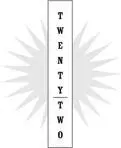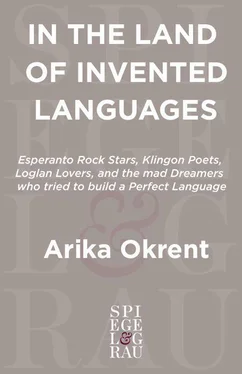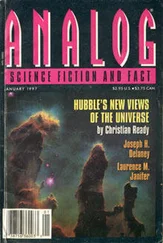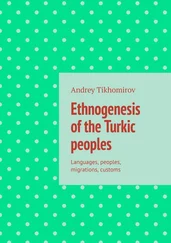Lojban wants to be both everything, a language that accommodates all worldviews, and nothing, a language committed to no particular worldview. At the same time, it wants to be a specific something —a language that trains your mind in the rules of formal logic. It’s hard work keeping on top of all these goals at once.
And somewhat futile. Not only do we “not know what thing the universe is,” but we don’t know what assumptions we make about it. We cannot see our own worldview any more than we can see our own eyes. We don’t think about the difference between alienable and inalienable possession until we chance upon a language that makes the distinction. Lojbanists have done an admirable job of incorporating these types of distinctions into the grammar when they discover them, but they can never be sure they have discovered them all.
They are aware of this. No Lojbanist today will go so far as to claim that Lojban is free from what they call “metaphysical assumptions.” They will only say that they are doing their best to make the language as culturally neutral as they can. Lojbanists are nothing if not conscientious analyzers of their own hidden metaphysical assumptions. And when someone comes across an especially exotic type of meaning (or distinction in meaning) encoded in another language, they will all pitch in, with great excitement, to see whether it can somehow be accommodated. The size of Lojban grew rapidly, after the split, from a frenzied burst of just this type of activity. In one case inspiration came from an unlikely source: another invented language, also created for the purpose of conducting a Whorfian experiment. It was a language designed not to avoid committing to a worldview but to express one that the inventor felt no language adequately expressed: a woman’s point of view.

Suzette Haden Elgin, as her Web site biography states, “was born in Missouri in 1936. All sorts of things happened, and in the late 60s she found herself widowed, re-married, mother of five, and a graduate student in the Linguistics Department of the University of California San Diego.” In order to earn some extra money, she started writing science fiction, and in 1970 she published her first novel. A few years after that she finished a dissertation on Navajo syntax and then worked as a linguistics professor until 1980, when she retired and moved back to her native Ozarks.
A year later, she was invited to speak as a guest of honor at a feminist science fiction convention. She planned to address the topic of why the fictional worlds of women writers tended to be based on the idea of matriarchy—where women are superior to men—or androgyny—where women are the same as men—but not a third alternative, where women are entirely different from men. Perhaps, as she explains in the introduction to her grammar of Láadan, the language she eventually created, it was because “the only language available to women excluded the third reality … the lack of lexical resources literally made it impossible to imagine such a reality.”
She had recently become aware, through a book she had been asked to review, of the “feminist hypothesis that existing human languages are inadequate to express the perceptions of women,” and she began thinking about what a language that did adequately express those perceptions might look like. And if there were such a language, how might it change the people who spoke it? How might it change society?
She wanted to explore these questions further, but wasn’t quite sure how to go about it. “A scientific experiment and a scholarly monograph would have been nice,” she wrote, “but I knew what the prospects of funding would be for an investigation of these matters.” So she took her questions to the laboratory of fiction, beginning her work on Native Tongue , a futuristic novel in which a marginalized class of women linguists create a language for themselves.
Elgin wanted to know, as a linguist, exactly how her fictional language worked, so she set about creating it, going far beyond the rough description and smattering of vocabulary of other fictional thought-experiment languages, such as Newspeak. She put her language to the test by translating various texts into it, in the process refining and expanding it, and by the end of 1982 Láadan had a well-defined syntax and a vocabulary of over a thousand words. Elgin began to see the possibility for a real-world experiment as well. If women really did feel that existing languages were inadequate to their perceptions, what would happen when they were offered a woman’s language? Either “they would welcome and nurture it, or it would at minimum motivate them to replace it with a better women’s language of their own construction.” Láadan was released to the world when Native Tongue was published in 1984, and Elgin decided to wait ten years to see how it fared out there. She would declare the experiment a success or a failure by 1994.
Early on, Láadan was embraced by a small group of women science fiction readers who formed the Láadan Network. One of them put together a zine of contributions from the network—letters, comments, Láadan poetry, suggestions for new words. In 1988, the Society for the Furtherance & Study of Fantasy & Science Fiction, the group that organized the WisCon convention, published a grammar and dictionary of the language that included lessons and exercises.
Láadan establishes itself as a “woman’s language” through some rather obvious devices. It has the only language textbook I know of that gives the word for “menstruate” in Lesson 1. But the approach has a level of sophistication that far exceeds non-gendered pronouns or “womyn’s herstory”–type coinages. The language is meant to convey a female perspective in the way it carves up the world of experience into linguistic forms. The experience of menstruation, for example, is carved up the following way:
osháana — to menstruate
ásháana — to menstruate joyfully
elasháana — to menstruate for the first time
husháana — to menstruate painfully
desháana — to menstruate early
wesháana — to menstruate late
Pregnancy is also covered by a range of vocabulary items:
lawida — to be pregnant
lalewida — to be pregnant joyfully
lewidan — to be pregnant for the first time
lóda — to be pregnant wearily
widazhad — to be pregnant late in term and eager for the end
As is menopause:
zháadin — to menopause
azháadin — to menopause uneventfully
elazháadin — to menopause when it’s welcome
The effort to capture the perspective of women in words is not limited to the particularities of the female body. Other words cover a range of situations that could conceivably be experienced by men, but that are nonetheless designed to make you want to nod your head and go, “Uh-huh. Tell it, sister.”
radiidin: non-holiday, a time allegedly a holiday but actually so much a burden because of work and preparations that it is a dreaded occasion; especially when there are too many guests and none of them help
rathom: non-pillow, one who lures another to trust and rely on him or her but has no intention of following through, a “lean on me so I can step aside and let you fall” person
rathóo: nonguest, someone who comes to visit knowing perfectly well that he or she is intruding and causing difficulty
Читать дальше













